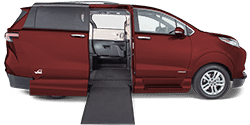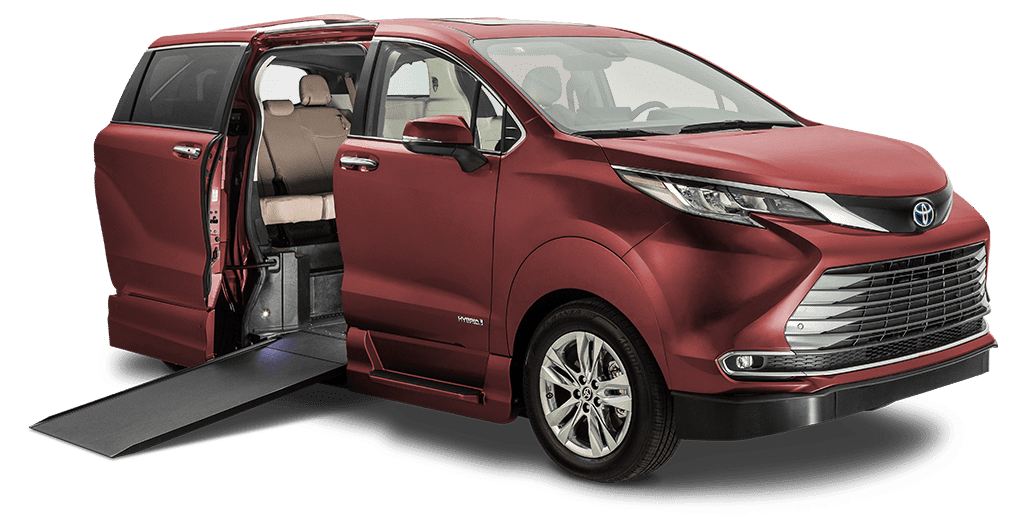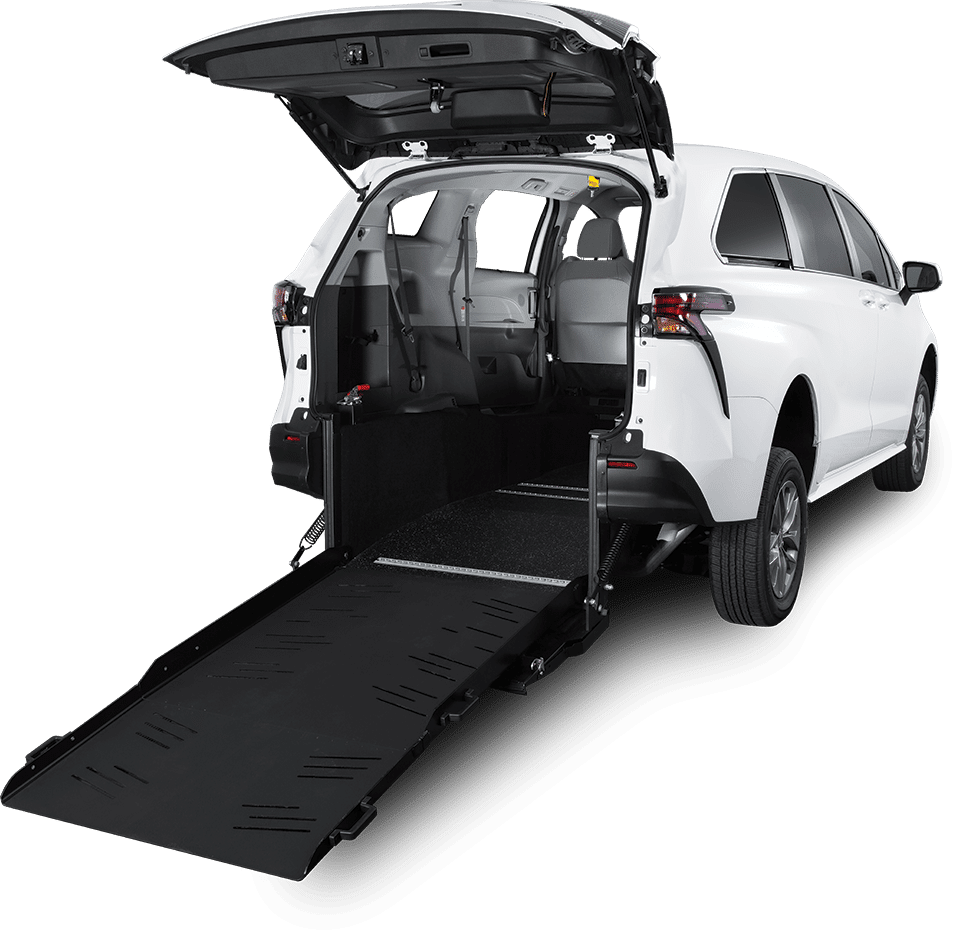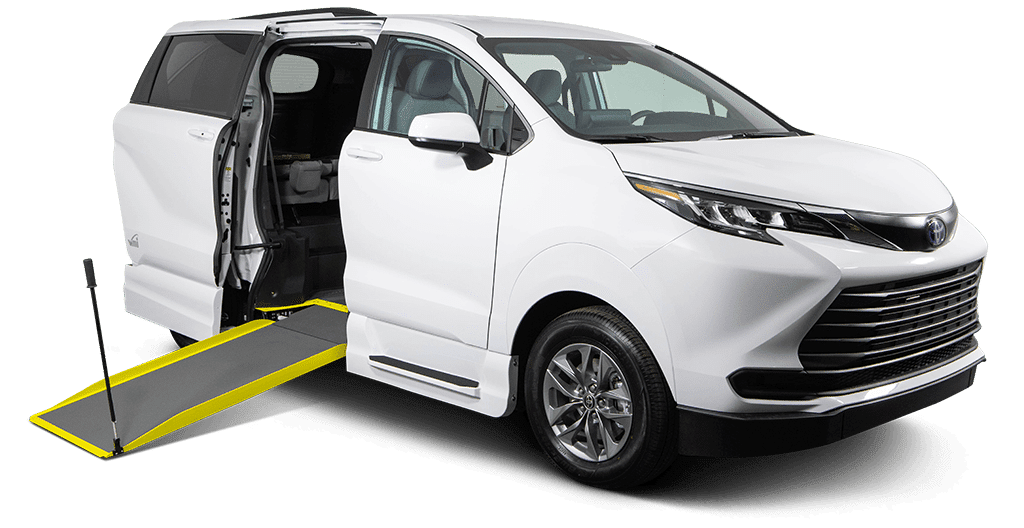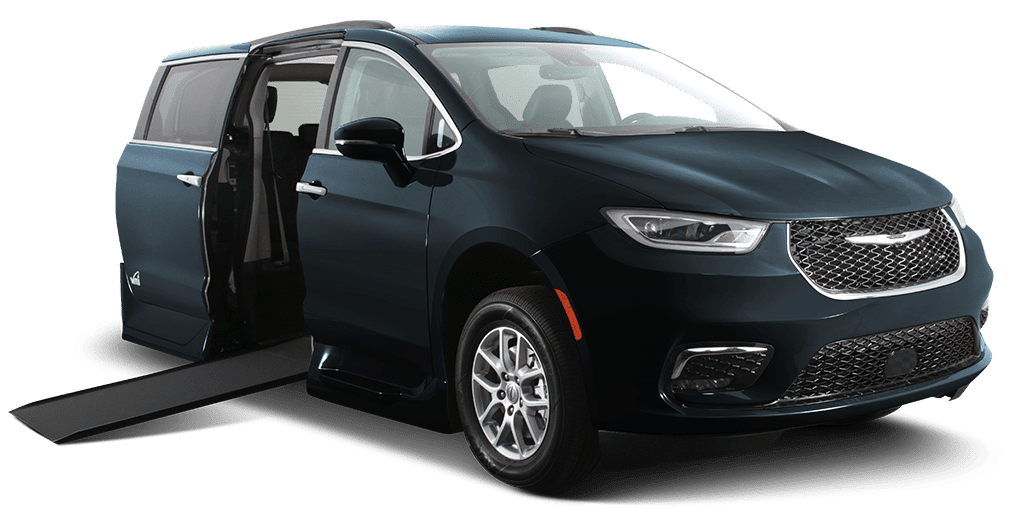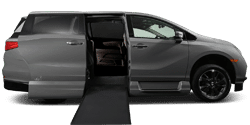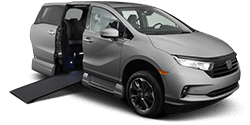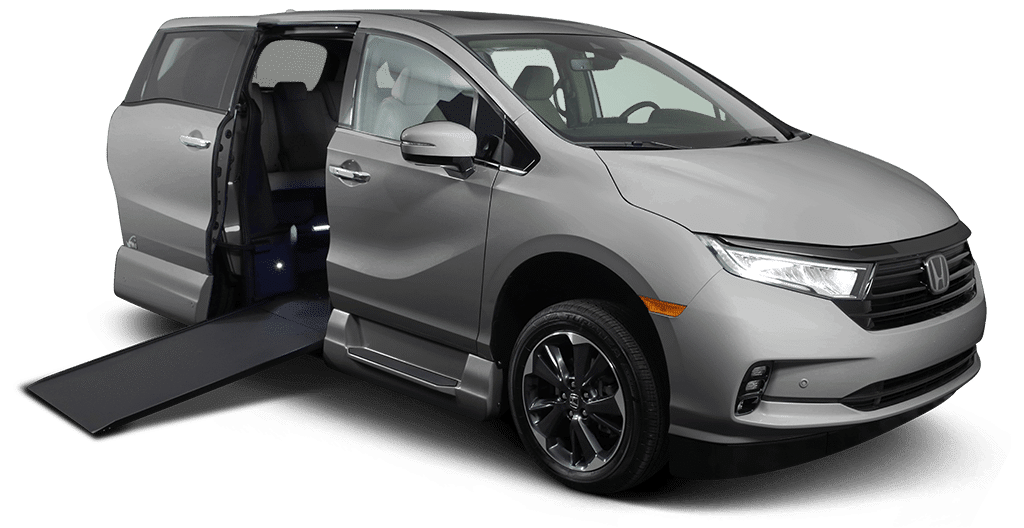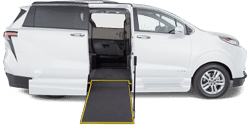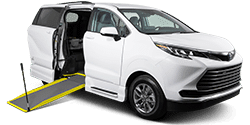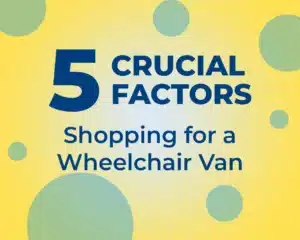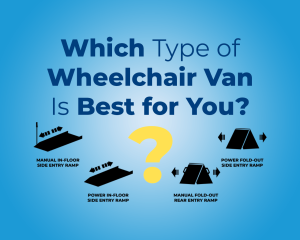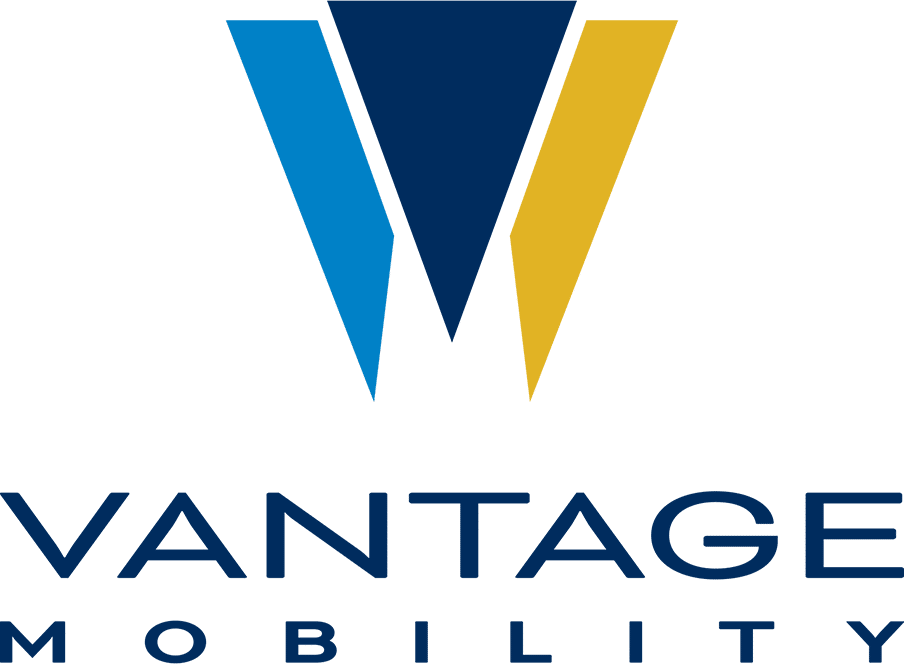Dating when you have a disability is often a little scary and intimidating, but it doesn’t have to be so stressful. Whether you’re adventuring off into the dating world first time or rolling back into it, this article can help ease your worry and empower you to find whatever type of healthy companionship you’re looking for.
In this post we preview a few popular dating websites for people with disabilities, and we chat with a dating and sex expert, Dr. Danielle Sheypuk, about dating, relationships and sexuality among disabled people.
Click here if you want to jump to our Q&A with Dr. Sheypuk. Otherwise, keep reading to learn a few basic dating tips and read summaries of four disability-friendly dating websites.
Dating Advice for People with Disabilities
Pick an accessible meet-up place
As any experienced wheelchair user knows, getting around town may not be the easiest thing to do unless you have a wheelchair van. When you are meeting up with somebody for a date, we suggest choosing a comfortable location that you know can accommodate your needs. This helps focus your attention on getting to know your date, instead of struggling against potential environmental barriers.
Be honest about your disability in your profile
Online dating gives us vetting opportunities for potential suitors, and not everyone may be interested in dating someone with a disability. To eliminate these mixed matches, be honest about your disability in your profile. It prevents any miscommunication snafus and shattered expectations. Dr. Sheypuk’s Q&A has more excellent points on this matter.
Don’t focus on your disability
Being honest about your disability is important, but you’re more than just a disabled person. The brunt of your profile and first date should be about you (and your date); if your date is only interested in talking about your disability, then try steering the conversation toward more appropriate first-date subjects. If you’re up for a fun challenge, then consider this list of 36 questions designed to blossom romance and truly discover who a person is.
Disabled Dating Sites
Whispers4U
Whispers4U has been around since 2002, and the website touts the ability to help “differently abled” people find love and support in a safe environment. It offers free and paid memberships that come with access to different features such as video tutorials, webcam chatting, instant messenger, database search, 24/7 support, virtual flirting and email. Plus, Whispers4U regularly checks for scammers and removes fraudulent profiles so real singles are better protected. The website was also a finalist in the iDate awards for best niche dating site.
Dating4Disabled
Dating4Disabled is a free, online dating site that allows users to meet, date and share resources with other people with disabilities. There are no contracts, everything is confidential and the website offers a range of tools, including forums, a messenger service and a smart search function. The options here are fairly standard among online dating options, but the community works together to help others find romance, friendships or disability resources.
Special Bridge
Special Bridge is a private, family-owned and operated social community for people with disabilities that is slightly new to the online dating scene. Although the website emphasizes its capacity as a dating service, Special Bridge is more than another cookie-cutter dating site. Its real purpose is connecting people with disabilities to other people with disabilities, whether that’s for friends, romance or even pen pals. The website has the standard array of services: messaging, customizable profiles and matchmaking services. But it also goes one step further to protect its users and offers more in-depth services, such as background checks for anybody who you’re worried about meeting up with.
Disabled Passions
Disabled Passions is a social networking community with more than just matchmaking services. It offers a variety of content related to disabilities and dating, including funny videos, games and collected resources. As with many other dating sites for people with disabilities, it also offers the opportunity to date or make friends through chat, secure email and message boards.
Mainstream Dating Websites
If none of these disability-centric dating sites catch your interest, then consider looking at more mainstream options like OKCupid, eHarmony, Tinder or Match. You may face a bit more questioning or even receive higher rejection rates, but these services have significantly larger user bases for you to choose from.
Our advice for tackling these mainstream dating sites is simple: create your profile to reflect your authentic self, and don’t be afraid to send messages to people you’re interested in. In the messages, move past simply saying “hi,” and start an actual conversation. Comment on similarities between the two of you, or share a fun or funny experience and relate it to their profile.
However, do keep in mind that these websites are much larger than niche disability dating sites and some users, particularly women, can get bogged down by dozens of messages. So don’t fret if you don’t hear back from somebody within the first few days; it’s entirely plausible they simply haven’t seen your message yet.
Once you have that first date lined up, remember the advice Dr. Sheypuk gives in her Q&A with Vantage Mobility; some of the topics she touches on may come up in your date.
Q&A about disability dating with Dr. Danielle Sheypuk
When it comes to dating for people with physical disabilities, Danielle Sheypuk is the expert.
Dr. Sheypuk specializes in “dating, relationships and sexuality among the disabled,” but some people simply refer to her as a disability “sexpert.”
Most people would know Dr. Sheypuk from winning the Ms. Wheelchair New York pageant in 2012, being the first model to “walk” down a runway in New York Fashion Week, her popular TedX talk at Barnard College, her successful private practice in Manhattan, or her recent interview on PBS, where she dives into the stigmas surrounding disabled dating.
We recently asked her about the stereotypes people with disabilities face on a regular basis, and what she thinks we should do to change it. Here are her thoughts:
Media does not typically portray people with disabilities as romantically available
DS: The biggest stigmas are that we’re still seen as asexual and not beautiful. Our bodies are different than what people see on a daily basis, [so] it’s unknown territory for them. In the media, we’re never portrayed as sexual people. We’re never associated with anything sexual or glamorous or beautiful. Therefore, people don’t in general make that association.
Able-bodied individuals don’t understand what it’s like to date someone with a disability and therefore sometimes avoid it
DS: When you’re trying to enter the dating world, [for] people that you come into contact with, it might be the first time they’ve ever spoken with someone in a wheelchair. You [encounter] all these obstacles and hurdles right from the start [because] people don’t know anything about what it’s like to have a disability, and it’s hard to get over. When they do find out aspects of your disability, they don’t know how … that would work in a relationship. [They might ask]: “You use a motorized wheelchair all the time?” So then they quickly think, “How would we get around? How would we go places together? How does she get out of the wheelchair?” It’s just a total lack of exposure. That’s why I do so much media work [and] try to expose [the issue to] people as much as I can.
Advocacy must focus on two things: breaking society’s stigma surrounding disability dating and building romantic confidence in people with disabilities
DS: I have my private practice where I work [with clients] on issues regarding dating and sexuality, rejection and how to handle it. [For example], when some guy asks you something personal about your disability, do you want to answer it? Do you not? So we work on those types of things, boosting self-esteem [and] recognizing that you’re someone beautiful who has a lot to offer. You’d be an amazing partner. [We also look at] what you are looking for in a partner. At the same time, we need the general public to come around too. If everyone’s going to tuck their tail between their legs and run away from a woman in a wheelchair when it comes to having a girlfriend or a wife or sex, then it’s going to be feudal. We need both things to happen.
People with disabilities should not be restricted to only dating other people with disabilities
DS: You should keep your mind open to date whomever you connect with romantically and sexually. You can make anything work physically, so keep your options open for that crazy, awesome romantic connection. I’m against the idea that people with disabilities should only date people with disabilities … Just because we’re both in wheelchairs doesn’t mean we have anything in common. [Upon first recognizing this stigma, I thought], Is that what people think? That because I have a disability I can’t enter the dating world like everyone else? I have to be restrained to people with disabilities?
People with disabilities should be open to online dating and open about their disability
DS: I’m a big proponent of that. I think it needs to be written on your profile and there needs to be pictures that show you have a disability. It avoids a lot of rejection and a lot of heartache, I feel. The opposite side of the argument is: Don’t put it there, and let them get to know you. They’ll … see you for who you are. [Then], you’ll reveal you have a disability, and they won’t care. That is most likely not going to happen. Yes, they might get to know you and really have feelings for you, but when you reveal you have a disability, they could feel lied to. It’s just like people being dishonest with their age, weight or marital status. It’s just good to put who you are right up front.
Everyone experiences dating rejection, with or without a disability
DS: I talk with my clients about how rejection is a huge part of everyone’s dating experience. Everyone has been rejected, and it feels awful, and it happens more than we want it to happen. I congratulate them after they’ve been rejected or turned down the first few couple times; I congratulate them on officially entering the dating world. That’s often an accomplishment in it of itself for people. Some people with disabilities just avoid dating, avoid putting themselves out there [and] are fearful of rejection. So you did it. You just got rejected.
It is easy to blame rejection on disability
DS: Sometimes we go on dates, and we don’t get that call back that we think we’re going to get, so the easiest thing for us people with disabilities is [to blame it on] our disability, like, “Oh, it must be the wheelchair. It’s the fact that I have curvature of the spine, I know it. That’s what it is.” But we don’t know for a fact that that’s what it is. I think [rejection] can happen because [of] your disability and for other reasons as well, and sometimes it’s hard to keep that apart. We’ll never know.
Best of luck with your dating adventures!

